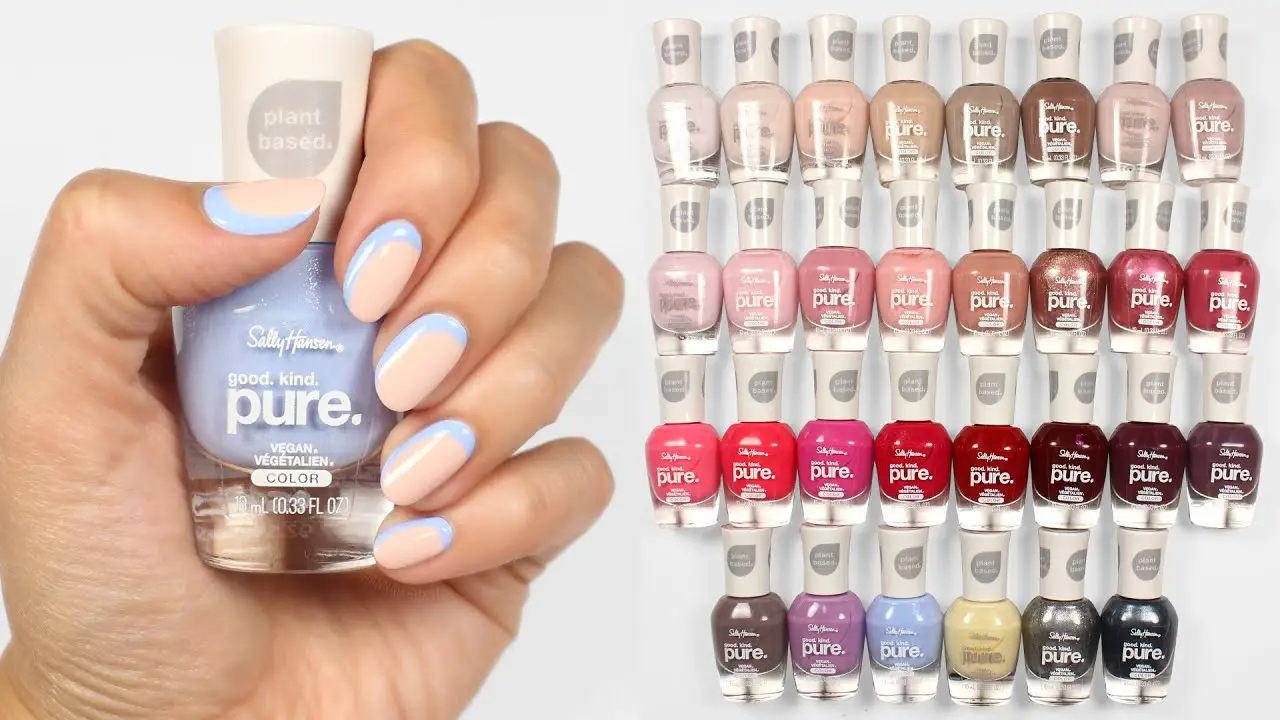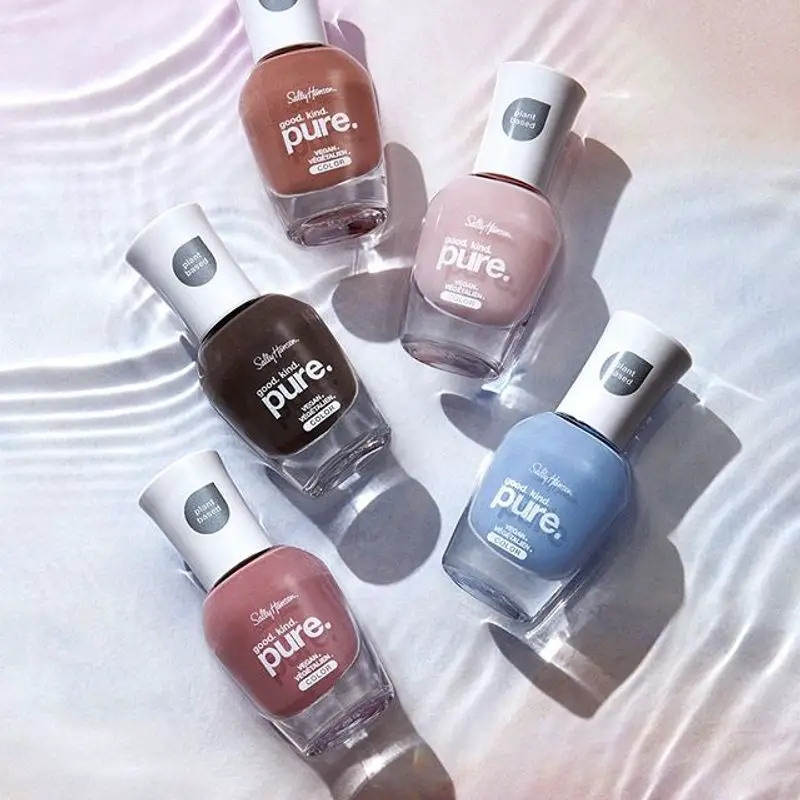Last Updated on October 15, 2021 by Janie Wilson
Is Sally Hansen Cruelty Free?
Is Sally Hansen Cruelty Free and Vegan? This question is often asked by people before trying out Sally Hansen products. More so, because many of their products are now available with prints labelled as “100% vegan product”. Let us find out the actual truth. Just read on.
To begin with, Sally Hansen is not cruelty-free since their products may have been tested using animals on mainland China.
Furthermore, Sally Hansen is not 100% vegan as a brand. But, Sally Hansen does offer certain vegan options.
To know more about this company and learn more about the reasons they’re not cruelty-free, keep on reading!
If you’re in search of new cruelty-free products to incorporate into your daily skincare routine, be sure you check out the last part of this blog post, in which you’ll find the top Sally Hansen cruelty free alternatives.
Let’s get started!
Is Sally Hansen cruelty-free? Are their products tested on animals?
Sally Hansen is NOT cruelty-free.
To be non-pornographic and to be cruelty-free, all brands should remember the following:
It is not a good idea to test the finished products or ingredients on animals.
They must ensure that the suppliers don’t conduct tests on animals.
Do not allow third parties for testing their product on animals.
They are not allowed to sell their products at stores located in mainland China or in other countries in which animal testing is mandated by law.
Let’s examine Sally Hansen’s policies on animal testing (Coty is their main company). I’ve highlighted the most important aspects.
The following is an update they’ve posted on their US page of their website.
At Coty We do not make our product tests on animals. We we are determined to stop testing on animals across our entire industry.
Our products are all secure and have been designed to be manufactured, packaged and sold to comply with the regulations, laws and guidelines applicable to each country where we sell them.
Coty’s experts in human safety review our ingredients as well as our finished products, based on the most advanced science using the use of well-known alternatives to testing on animals as well as existing safety data and, more recently the sharing of these information with other organizations and companies.
Source: The FAQ page located on the US version of the Sally Hansen website.
The part that is highlighted above suggests that they’re selling in China. However, it doesn’t mention this issue specifically.
This is, however, the policy regarding animal testing which is available in their website in the UK versions of their site:
At Coty We do not make our product tests on animals. We we are determined to stop the use of animals in our industry.
Our products are all safe and have been designed and manufactured to comply with the regulations, laws and guidelines that apply in the country where we sell them.
Coty’s human safety experts evaluate our ingredients as well as our finished products, using the most advanced science using the use of known alternatives to testing on animals as well as existing safety data and, in recent years sharing such information with other parties and companies.
Certain government agencies or governments mandate the testing of products on animals as per local laws and regulations. A good instance is China which we remain involved in dialogue with Chinese authorities, and by our active participation in industry associations, in order to discover alternatives to animal testing.
Source: The FAQ page located on the UK version of the Sally Hansen website
Then, Sally Hansen admits that they sell their stuff are in the mainland of China which is where animal testing is still required by law.
So, Sally Hansen is not animal-free.
Continue reading to learn more!
Are Sally Hansen products sold in China?
Sally Hansen are products sold in the mainland of China where testing on animals is still legally required.
Why can’t brands with claim to be cruelty-free offer their products across mainland China?
There are many international brands that make their products available in physical stores on mainland China.
Testing of animals prior to the market is required for all products that have special-use imports and post-market testing that is not routine on animals can be conducted in the event of complaints from customers.
But, keep the fact that this doesn’t apply to items that are sold at stores located at airports and also located in Hong Kong.
Additionally, the products can be purchased online and then shipped directly to mainland China without the need to test on animals.
Are Sally Hansen owned by a parent company? If so does it have a cruelty-free policy?
Sally Hansen is owned by Coty the company which doesn’t have a zero-tolerance policy for animal testing.
Is Sally Hansen vegan?
Sally Hansen is not 100% vegan.
There are certain vegan products, however, quite a few of their products contain products that are made from animals, so they should not be considered vegan.
Also, be aware that Sally Hansen products may be tested on animals in China and, therefore, aren’t non-vegetarian, so, I don’t think of them as vegan-friendly.
Alternatives that are vegan and cruelty-free to Sally Hansen
Sally Hansen is a brand which sells nail polish and nail products, as well in hair removal products.
There are a lot of cosmetics brands that are cruelty-free! This is why, in my view, there’s no reason to endorse brands that test their products on animals.
Some of the most alternatives that are cruelty-free for Sally Hansen are:
- KleanColor
- Barry M
- GOSH
Wrapping up
Is Sally Hansen Cruelty Free and Vegan?
Hope this post has answered your question: Is Sally Hansen cruelty-free and vegan? Now it’s your turn to decide whether you are going to use their products or settle for some other products that take into consideration moral and ethical issues.
How do you feel of Sally Hansen’s policy on animal testing? What are your top brands that are cruelty-free?
Let me know what you think of when you see your near and dear ones using brands which are not cruelty-free. Would you like to avoid talking about these sensitive issues or try to explain to them that such products should better be avoided if they really care for this world? The ball is now in your court!


